Yelling, cursing, but no physical confrontation on or off the water
Another contentious chapter in a very long dispute over Indigenous fishing rights and federal laws on conservation has begun.
Thursday saw a handful of Indigenous lobster boats head out of southwestern Nova Scotia to lay traps using ‘licences’ handed out by a local Mi’kmaw chief and not from the federal Fisheries and Oceans Canada department (DFO).
Commercial lobstermen in the area staged protests this week saying the Mi’kmaw are fishing out of season and illegally. The fishery is closed as it’s molting season when lobsters renew their shells, and mating season. They say the law closing the fishery for several months is necessary for conservation purposes and fishing at this time is not sustainable.
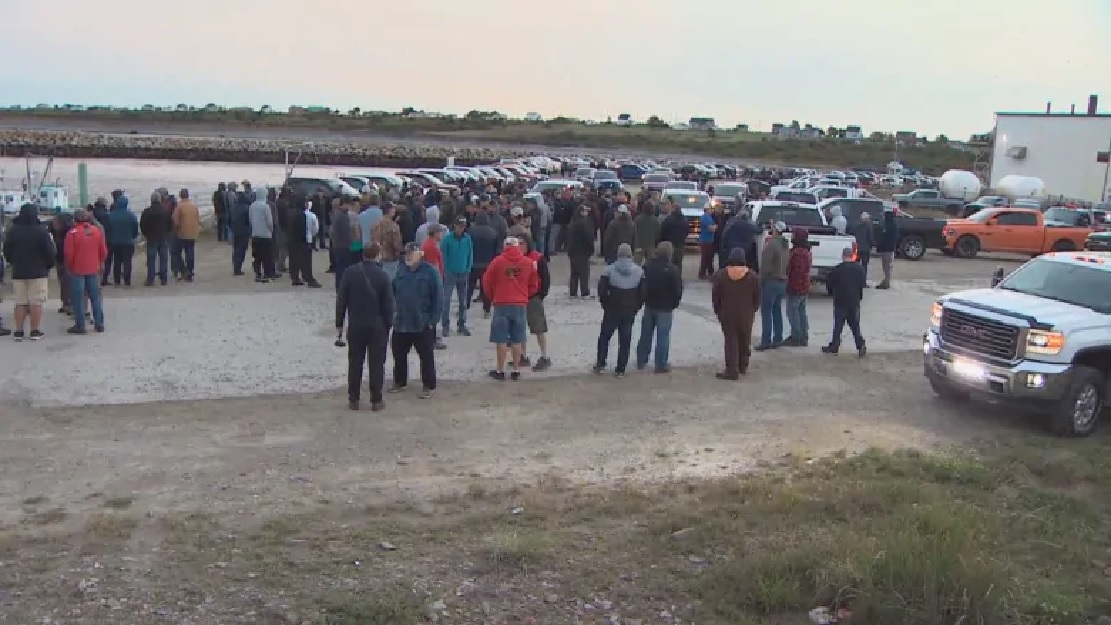
Crowds of commercial fishermen at the Saulnierville wharf on Monday where they temporarily blocked access. (CBC)
Quoted in the Halifax Chronicle Herald, fisherman Colin Sproul, a spokesperson for the Bay of Fundy Inshore Fishermen’s Association, said they have been demanding that DFO enforce the law and protect the fishery.
“The minister has to recognize the threats to our fishery and our communities. We’ve got empirical evidence from DFO’s own lobster landings data that shows a 68 per cent drop in landings in St. Mary’s Bay over the last three-year period. That doesn’t correlate with landings in the rest of the district. There is really strong evidence that a huge, huge amount of lobsters are being removed from this important breeding ground each year.”
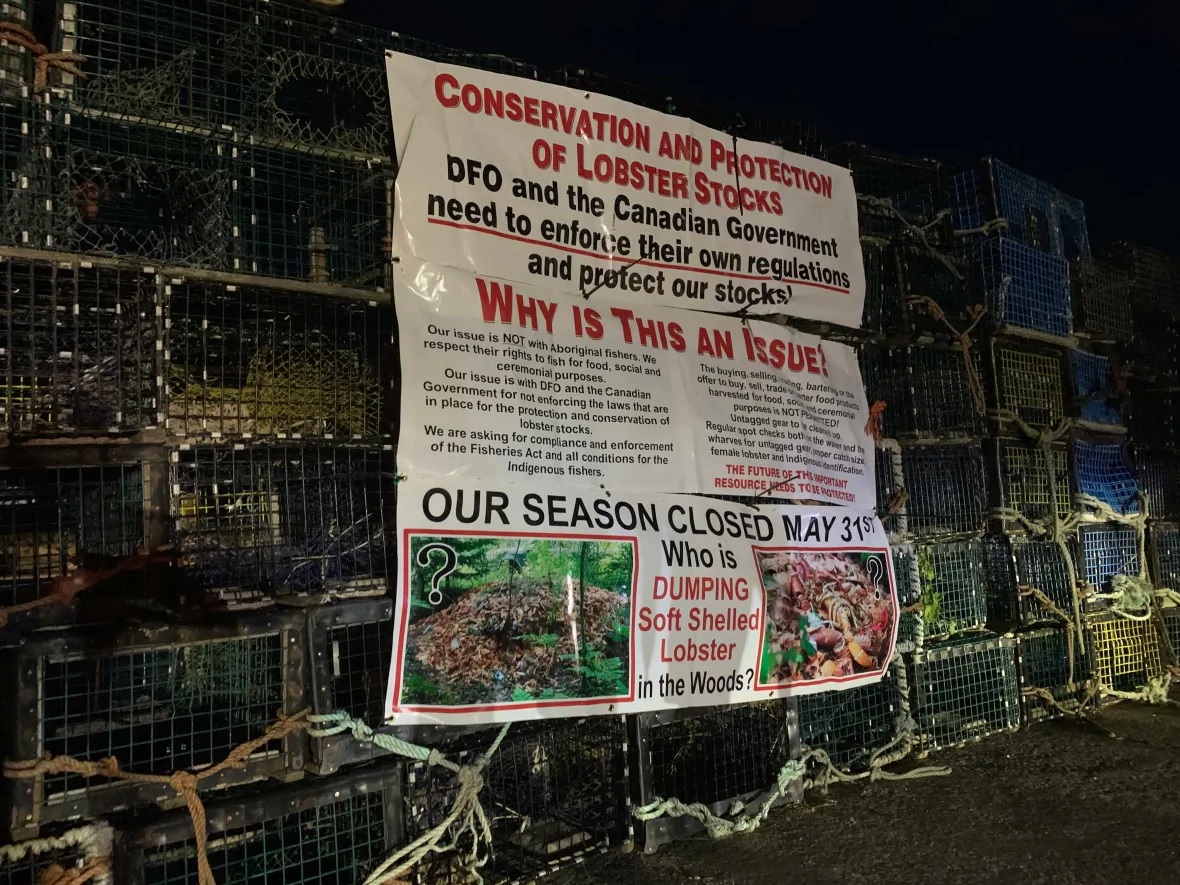
Stacks of lobster pots temporarily blocking access to the Saulnierville, N.S., wharf with signs describing the grievances of commercial fishermen. (Paul Withers/CBC)
He then added “Let’s be very clear here that our issue is not with Indigenous people. Our issue is with the federal government and the fisheries minister and their unwillingness to enforce existing Canadian fisheries policy and law.”
The fishermen say they have no problem with Indigenous fishing for food, social, and ceremonial purposes but claim this is in fact a commercial operation.” They allege Indigenous out-of-season commercial fishing has been going on for years.
Last month Sheng Ren Zheng, owner of a Nova Scotia lobster pound (where lobster caught are kept alive for later sale), was convicted of illegal commercial sale of Indigenous lobster being shipped to China after a DFO sting operation in 2017. The lobster were caught under the Indigenous food, social, and ceremonial permit, and commercial sale was not allowed.
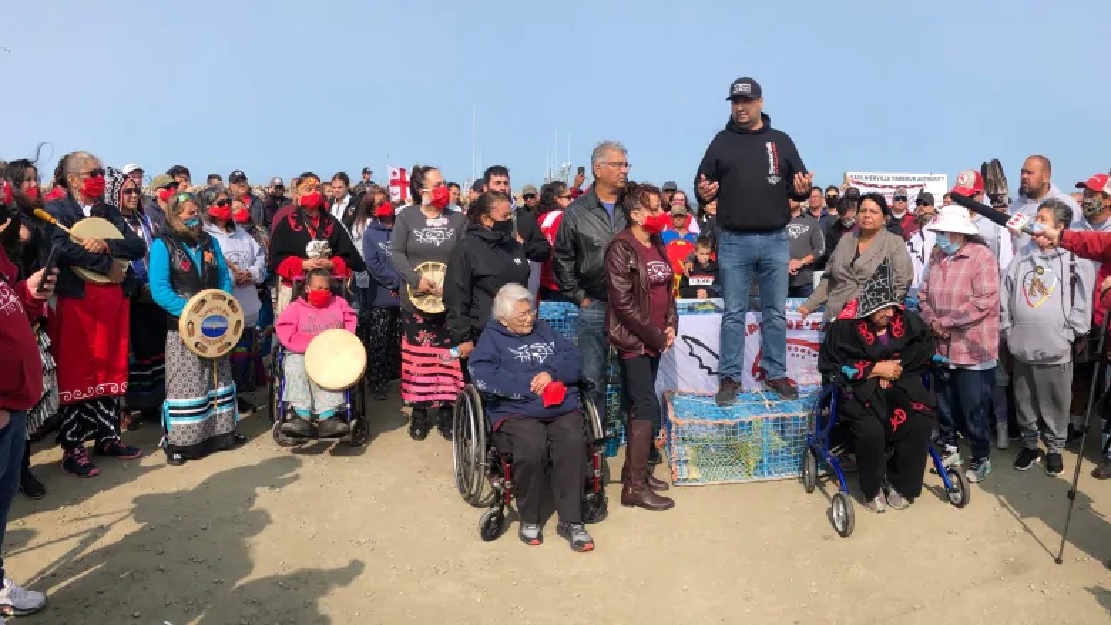
Sipekne’katik Chief Michael Sack addresses Mi’kmaw fishermen and their supporters Thursday during the launch of an Indigenous lobster fishery that local commercial fishermen say is illegal. (Steve Lawrence/CBC)
On the other side, Indigenous fishermen say they have a legal right to fish, and that their small numbers have no affect on the huge commercial fishery. First Nations Chief Michael Sack quoted by the Canadian Press said, “We’re not out of season, we don’t have a season”.
The move to hand out Indigenous licences and send boats out came exactly 21 years after a Supreme Court decision saying Indigenous peoples have a treaty right to earn a “moderate livelihood” from hunting and fishing. The treaty was modified somewhat by a subsequent ruling that the treaty rights were subject to federal regulation. However, a complication also exists in that there is no definition of what a “moderale livelihood’ means.
While the commercial fishers are upset at the fishing, they are angry at the federal Liberal Fisheries Minister Bernadette Jordan for lack of action in enforcing the law. In a statement, her office said she is communicating with First Nations leaders to “find a collaborative path back to the negotiation table,” adding that until an agreement is reached with DFO, there can’t be a commercial fishery outside the season and a sound management framework is needed for conservation of the stocks.
“I want to be clear that DFO continues to address unauthorized fishing. Fishing without a licence is a violation under the Fisheries Act and anyone fishing outside the activities authorized under a licence may be subject to enforcement action”.
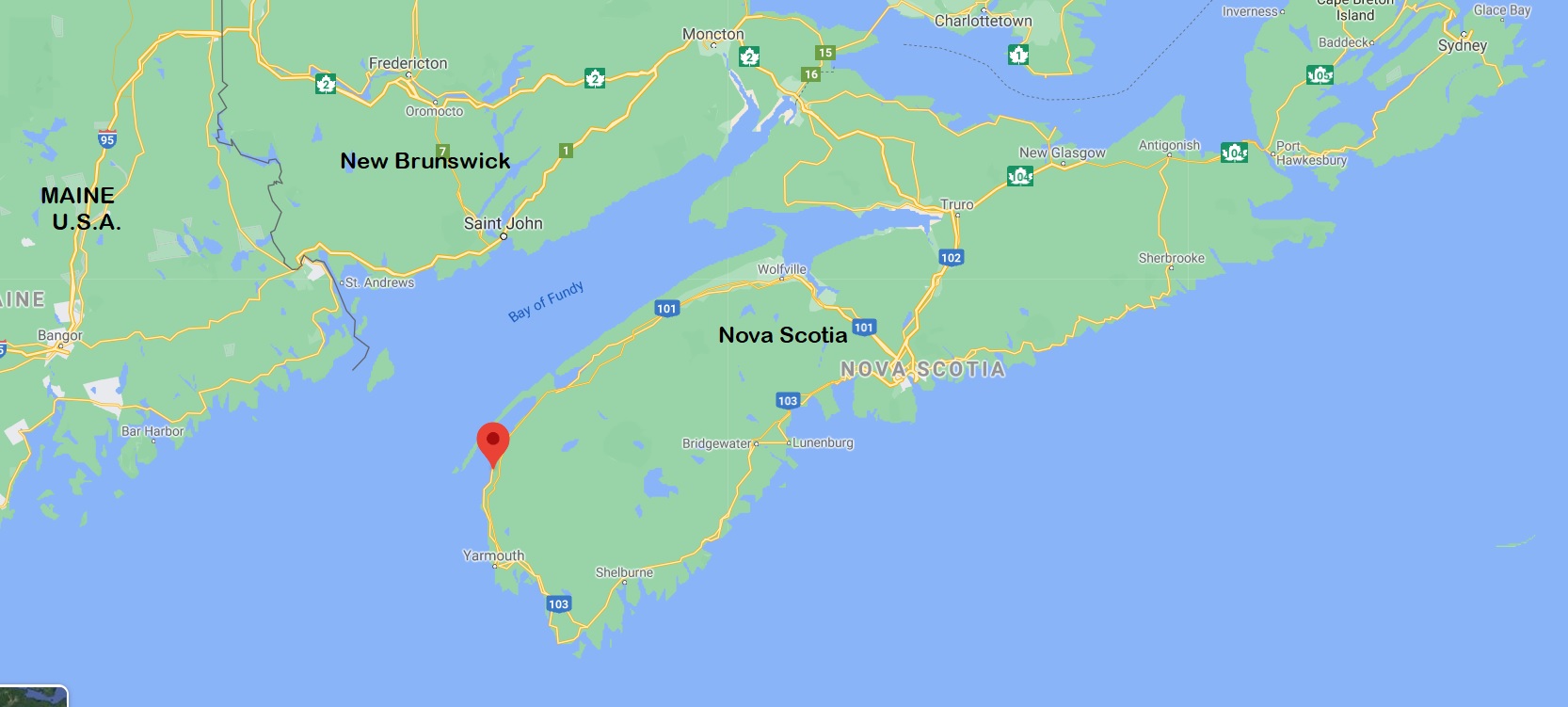
Red balloon indicates Saulnierville and nearby Weymouth on St Mary’s Bay, N.S. ( google)
The commercial fishermen are also upset that they have been excluded from any negotiations on the situation. Colin Sproule, quoted by the CBC said, “We are tired of being ignored over and over again. The Trudeau government has shown zero respect for the fishery laws that protect your families’ futures. That cannot go on any longer.”
Quoted in the Chronicle-Herald, Chief Sack said the commercial fishers concerns are sustainability noting, “We’re not here to go against that, so there’s no need to have them there. They don’t have anything to do with our rights, there is no table for them to be at. They can fish in their season, we don’t interfere with them fishing, and they need to do the same with us”.
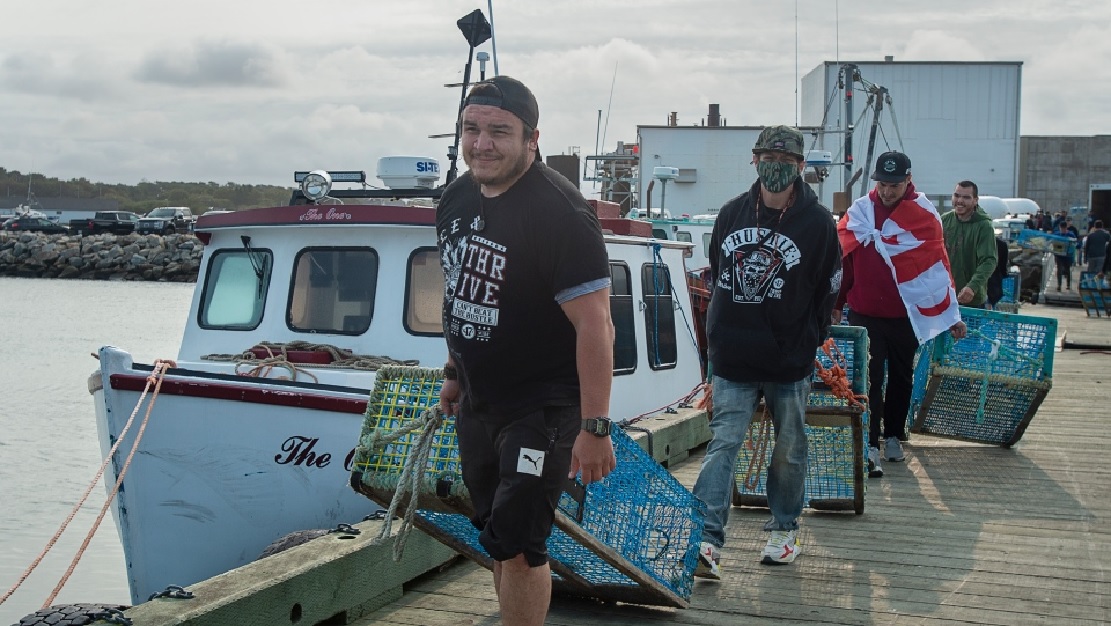
Members of the Sipekne’katik First Nation load lobster traps on the wharf in Saulnierville, N.S., after launching its own self-regulated fishery on Thursday, Sept. 17, 2020. (THE CANADIAN PRESS/Andrew Vaughan)
In a statement this week, the The Sipekne’katik Mi’kmaw First Nation wrote, “No responsible person can legitimately argue that the Mi’kmaq right to fish for a moderate livelihood or that the right to sell that catch commercially does not exist.The Supreme Court of Canada said they do.” It also said the catch will be sold to the public and commercial processors.
Quoted by CBC, Mi’kmaw negotiator Viola Robinson rejected the fishermen’s objections Thursday, saying First Nations’ “constitutionally affirmed rights can be exercised outside of government-imposed fishing seasons.”
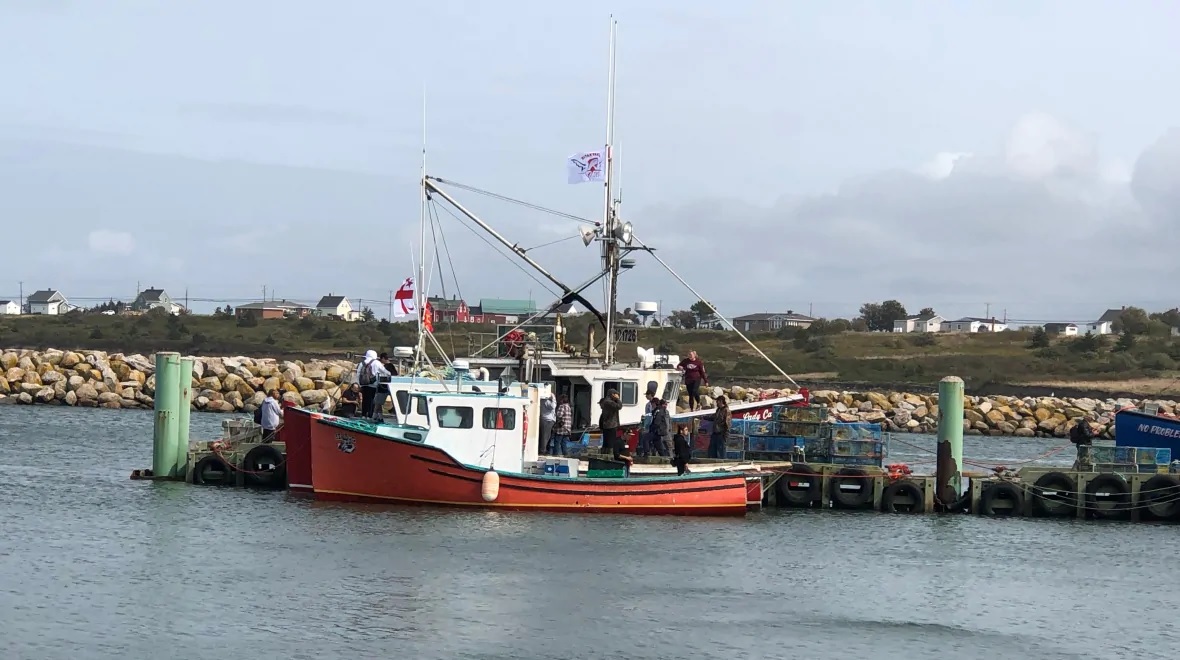
Saulnierville fishers protested the Mi’kmaw fishermen gathering in support of the Indigenous lobster fishery. (Steve Lawrence/CBC)
A Nova Scotia Conservative Member of Parliament, Chris D’Entremont, has sent a letter to Minister Jordan demanding the Liberal government take action to quell the rising anger saying he is concerned about safety of constituents. He says the tension is the result of her failure to take action on a decades old dispute.
Shortly after the Supreme Court clarification that federal regulations were still in effect, Mi’Kmaw communities in Burnt Church, New Brunswick and Indian Brook, Nova Scotia defied the ruling and immediately set traps. This led to trap seizures, violent confrontations and injuries, arrests, boat sinkings and even shots fired
This led to three years of talks in which some Quebec and maritime First Nations accepted a framework in 2007 for fishing which included millions of federal dollars to provide boats and gear. The Mi’kmaw of Nova Scotia did not accept the deal.
additional information- sources
- Halifax Chronicle-Herald: T Comeau: Sep 17/20: First Nations fishers head to sea on anniversary of Marshall decision with moderate livlihood licences
- Canadian Press (CTV): K Doucette: Sep 15/20: Nova Scotia fishermen protest ‘out of control’ First Nations fishery
- Halifax Chronicle Herald: T Comeau:Sep 15/20:T Comeau: Lobster protest- Fishermen demand DFO enforcement of out-of-season commercial and illegal fishing
- CBC: A Cooke: Sep 17/20: Mi’maw fishermen launch self-regulated fishery in lower Sackville
- Canadian Press (North Shore News): M MacDonald: Sep 17/20: Nova Scotia First Nation launches lobster fleet amid tension on the water
- Canadian Press (Global): M MacDonald: Sep 16/20: Lobster protests: Nova Scotia MP demands immediate action from Ottawa
- CBC: P Withers: Sep 15/20: Protest over Indigenous lobster fishery turns confrontational at N.S wharf
- CBC: P Withers: Aug 27/20: N.S fishermen say a First Nation lobster harvest is being abused
- CBC: P Withers: Aug 26/20: Lobster pound owner found guilty of illegal selling lobster
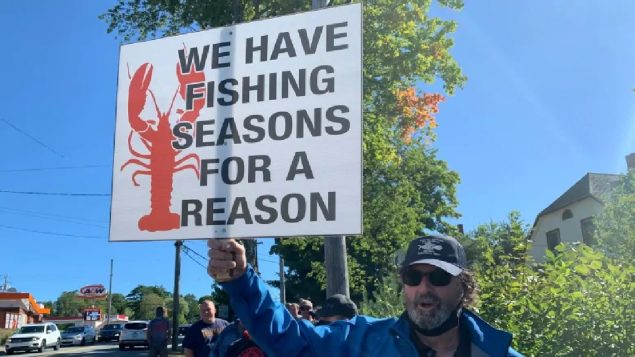






For reasons beyond our control, and for an undetermined period of time, our comment section is now closed. However, our social networks remain open to your contributions.